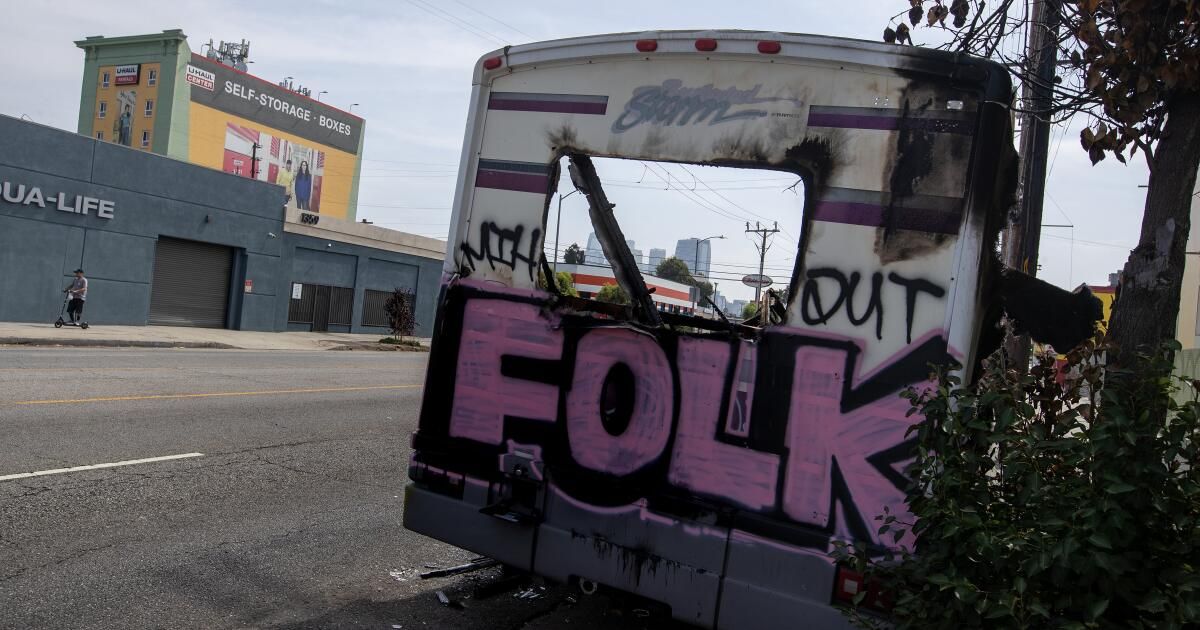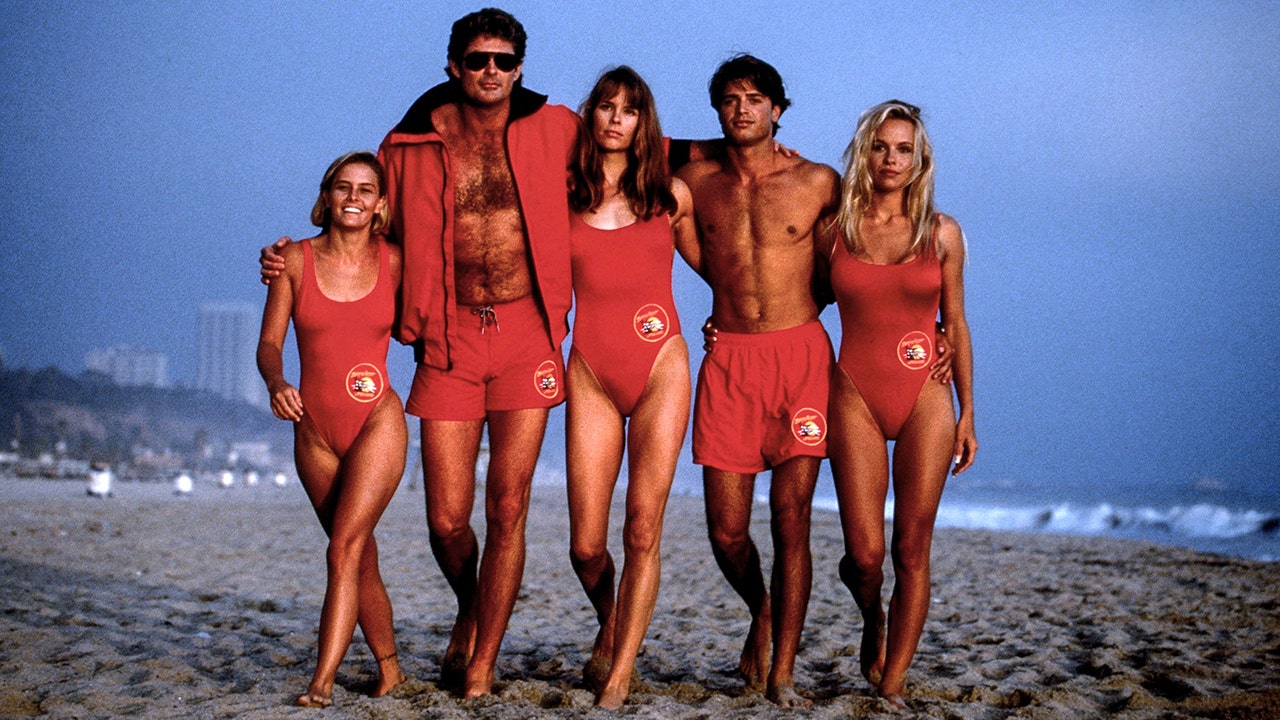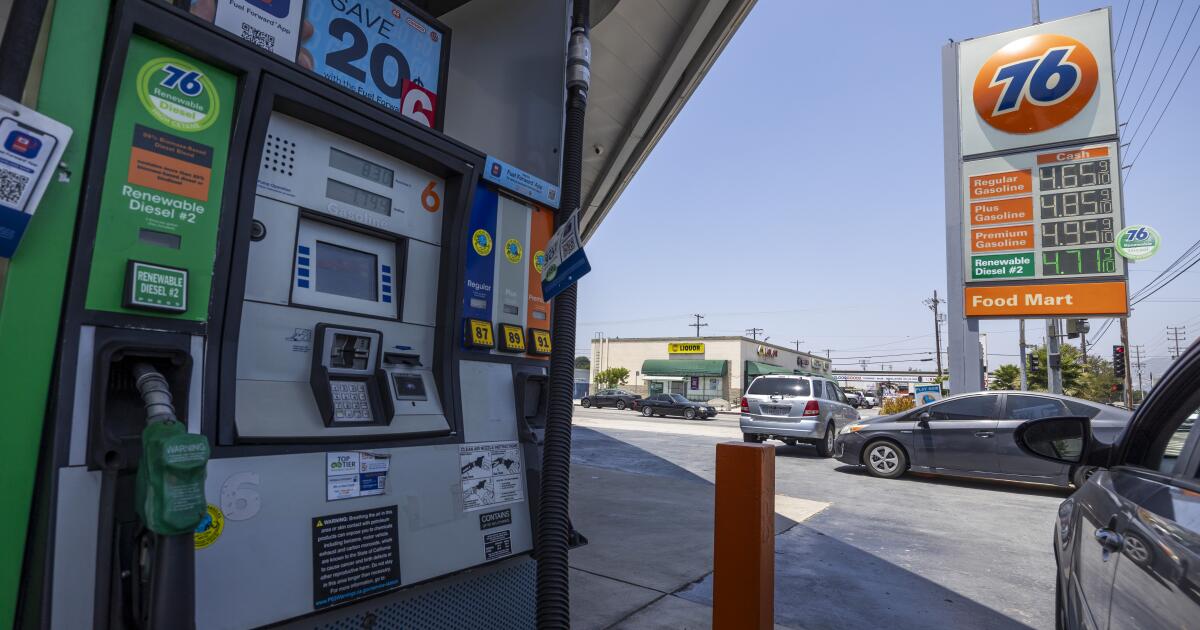The Los Angeles City Council on Friday gave the green light to tow illegally parked vehicles across large swaths of the city, giving workers more freedom to immediately remove recreational vehicles and other vehicles in which homeless people sleep.
Authorities have struggled to control the proliferation of RV encampments after a pandemic moratorium on trailering was lifted two years ago. Since then, traffic enforcers have had to go through a lengthy process to ensure the vehicles weren’t occupied. If they were, they had to offer housing outreach services.
Councilman John Lee, who proposed broader camping restrictions, said the measure “brings our city back to where we need to be and hopefully meets the expectations of our city residents that we enforce the laws and rules we already have on our books.”
The council voted 11-3 to allow the towing of vehicles that create “an immediate danger to public safety” or are parked in a rush-hour travel lane, in a measure proposed by Eastside Councilman Kevin de León.
Councillors Eunisses Hernandez, Nithya Raman and Hugo Soto-Martinez dissented.
Under an amendment drafted by Lee, city workers would not have to offer lodging services if vehicles are found without permits in overnight parking zones, no-parking zones, or metered parking zones.
The amendment passed by narrower margins, with Councilmembers Marqueece Harris-Dawson, Monica Rodriguez, Hernandez, Raman and Soto-Martinez opposing broader parking restrictions.
The policy does not change parking regulations, but is intended to enforce existing laws. It gives traffic officers the ability to tow vehicles in such zones if they pose a danger to road safety or public health, interfere with public works, are inoperative or have had their registration expired more than six months ago.
Some members expressed doubts about how the rules would be enforced.
“I had to personally call the Department of Transportation to go to enforcement areas,” said Rodriguez, whose council district covers the northern end of the San Fernando Valley. Their response has been “well, we don’t have enough resources,” he said. “However, they don’t have enough resources when it comes to certain neighborhoods. They just don’t have enough resources when it comes to mine.”
In previous years, the city's transportation department There was a lack of funding, storage space and equipment to remove large vehicles. — and found it difficult to locate the RV's occupants, complicating the seizure process.
“Right now, our DOT department is having a hard time covering the work they already have to do,” Hernandez said. “We didn’t give them any additional resources for enforcement. If a significant number of these vehicles are RVs, we don’t have enough garage space to tow them all.”
In 2024, there were nearly 6,900 recreational vehicles counted in Los Angeles, according to the Los Angeles Homeless Services AuthorityHowever, some residents do not consider themselves homeless and refuse to live in restrictive shelters.
Raman, who voted against both amendments, said the motion could supersede the city's efforts to address the problem of homeless people in recreational vehicles.
“It basically says that all other policies developed by the [City Administrative Officer] “The amendments that Councilman Rodriguez has put forward regarding the buyback of recreational vehicles will be moot and we will move towards another model,” Raman said. “The amendment is too broad.”
The new policy boils down to public safety, said Peter Brown, a spokesman for De Leon.
“The proliferation of recreational vehicles in the city brings increased safety risks on our streets,” Brown said. “Safety on our streets is essential. I believe there will be places where risks to pedestrians, cyclists and motorists are reduced.”












